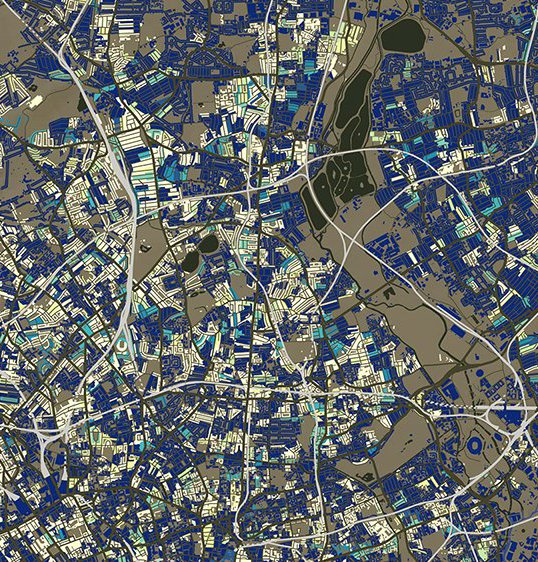Laboratory for Design & Machine Learning
Jump to
The Laboratory for Design and Machine Learning is formed of a multi-disciplinary team working on experimental and fundamental research into new methodologies and knowledge needed for emerging design processes at the intersection of machine learning, data processing and visualisation, and legal and developmental frameworks.
The Laboratory's research is dedicated to testing new interdisciplinary forms of designing and evaluation, hereby studying the impact of machine learning and governmental policies on spatial design.
The lab is currently working on a pilot study to analyse housing interiors and their spatial organisation with the aid of machine learning to generate new insights into housing design and standards. The aim is to develop alternative definitions of quality based on statistical and quantitative data, not just qualitative assessment criteria. The work explores how grounding discussions of policy, standards, and design on a solid, reliable body of empirical evidence can change the way we understand our domestic environments as well as the design and policy decisions that emerge from them. A key research question is whether if a new kind of evidence will produce a new kind of judgement; that is, can housing be designed and legislated beyond typological and activity-based planning through spatial models and data sets that work across different forms of organisation and scales?








